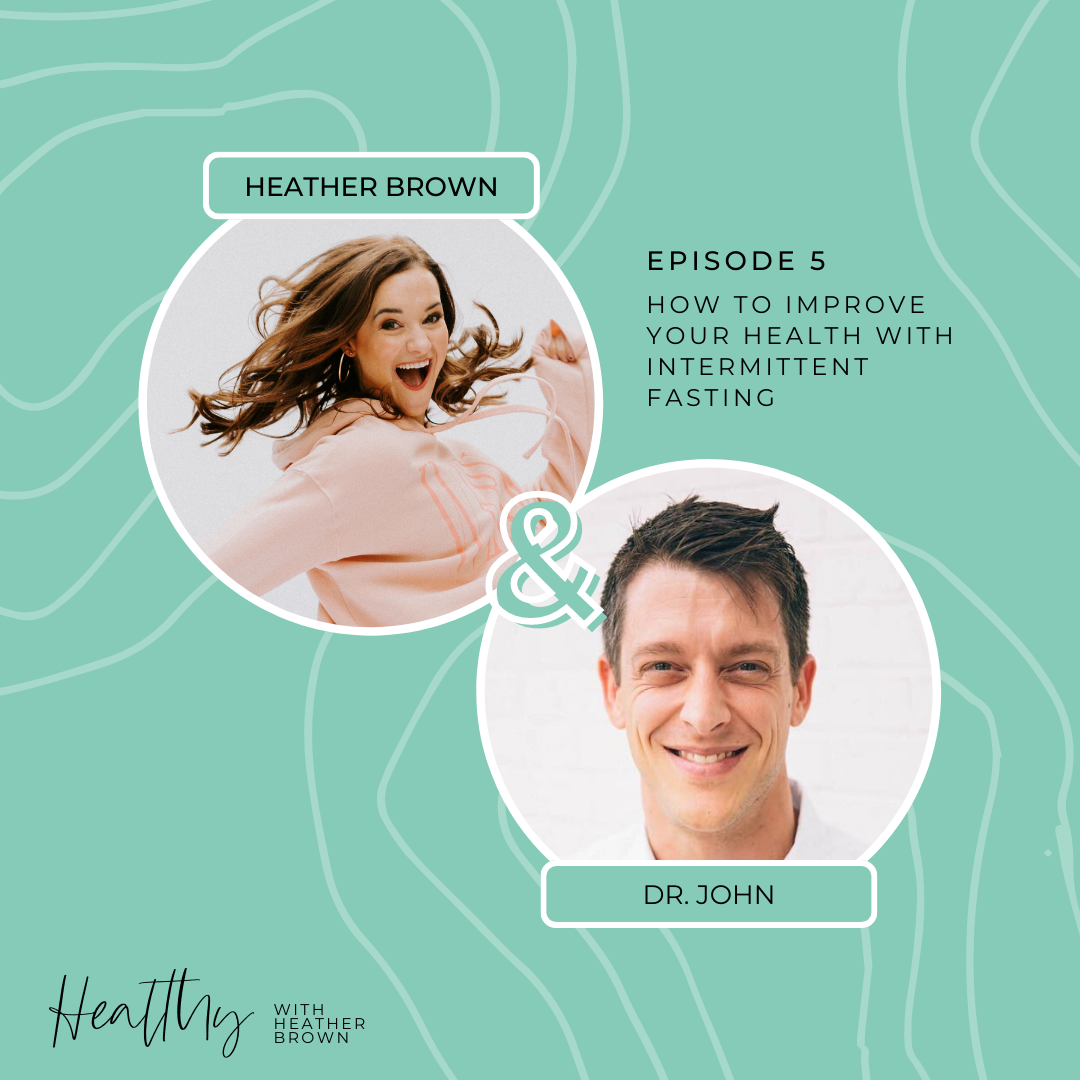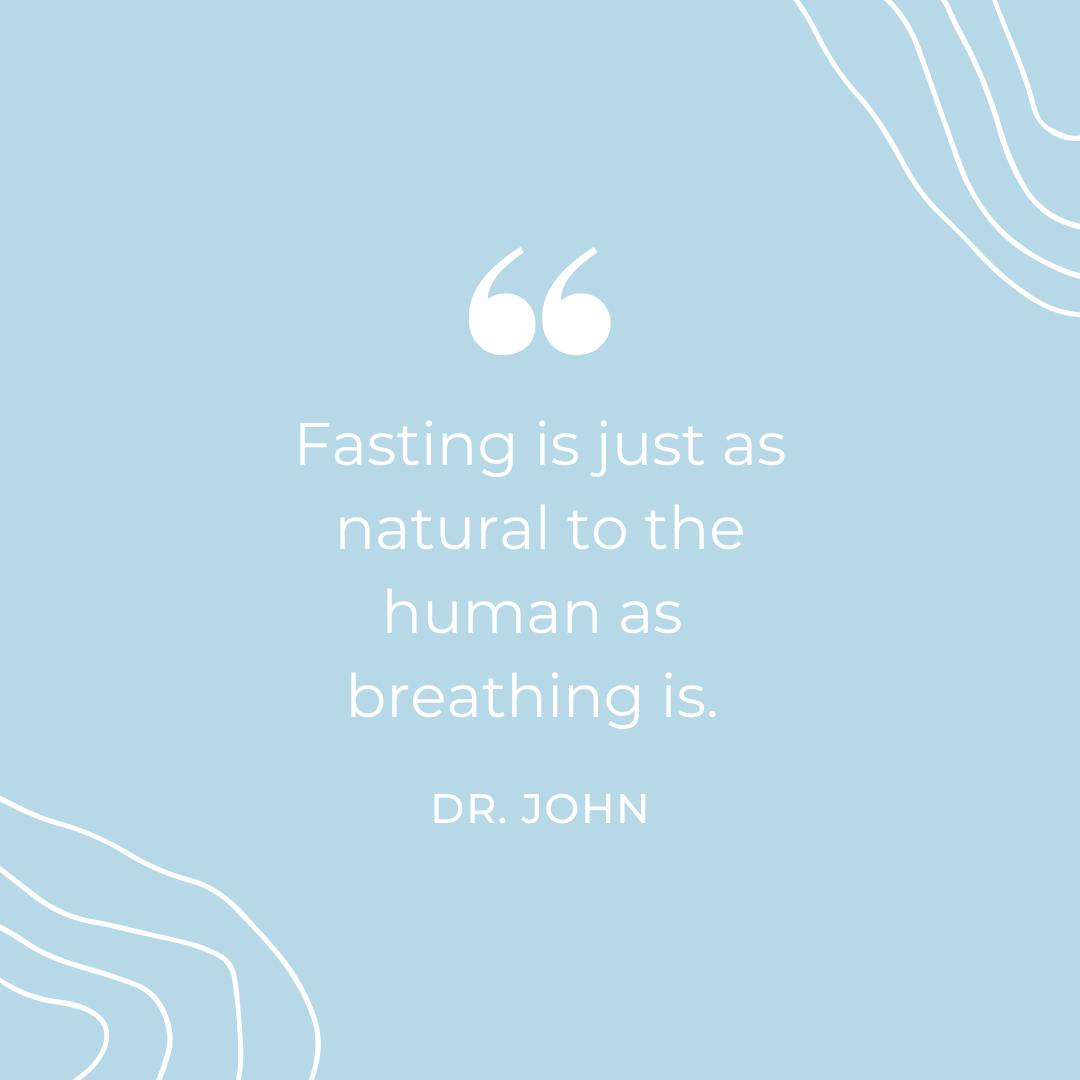Keep scrolling to read the episode show notes from the How To Improve Your Health With Intermittent Fasting With Dr. John Palmer podcast episode!
CLICK HERE TO LISTEN TO THE HOW TO IMPROVE YOUR HEALTH WITH INTERMITTENT FASTING WITH DR. JOHN EPISODE ON: SPOTIFY | APPLE | STITCHER | OVERCAST | GOOGLE
Get The Full How to Improve Your Health with Intermittent Fasting with Dr. John Show Notes Here:
Today I’m excited to give you a glimpse into somebody that’s very interwoven with my health: Dr. John Palmer. I started going to him when I was pregnant with Finn, and Finn is now four years old. So we have a lot of history together! In the beginning, he was my chiropractor. As time has gone on, however, I have really enjoyed getting to uplevel my health and fitness with him. If you’re local to Birmingham, Dr. John is based in Homewood, Alabama. If you have anything going on with your health – diabetes, back pain, neck issues, or infertility – he can help through addressing the blueprint of the human body. I also ask him to get really nerdy with me about intermittent fasting, and I learned so much from him. I just can’t say enough good things about Dr. John, so I know you will LOVE this interview!
In this episode, we discuss:
[3:12] Dr. John’s practice, Archetype Health
Intermittent fasting is a significant part of Dr. John’s practice, as Archetype Health was built around ancestral human living in a modern environment. Today, humans live in a very unnatural environment. Our diet, our movement, our healthcare, and our search for food is separate. In our ancestral days, everything was integrated. Dr. John wants to help others to integrate those practices in our modern environment, so we can live the best version of our lives.
Fasting, Dr. John states, is just as natural to humans as breathing. Our ancestors fasted out of need, but we no longer have to do that in the modern world. Fasting allows us to stabilize the utilization of glucose and fat and it promotes ketosis and detoxification. It allows our organ systems to repair. Ideally, we should fast as our ancestors did. They would look for food, eat clean food for a portion of time, and then fast again. Archetype Health promotes a natural living ethos.
[6:56] The physiology behind fasting
Intermittent fasting is often promoted as a routine of fasting for 16 hours and eating during a window of 8 hours. Dr. John suggests not doing it every day, as that would not mimic our ancestral eating schedule. For the first 18-20 hours of fasting, we derive energy from glucose. Past 20 hours, we begin to utilize the body’s fat as energy instead. Eating daily trains the body to receive food on a regular basis and to be dependent on that food. It is, however, an unnatural state for the human body. We burn out the use of insulin and glucose with no rest or repair for those systems. When we go past 20 hours of fasting, we are teaching the body to rely on itself to retrieve energy.
When people first start fasting, it will not be a pleasant experience. It is like cranking up an old engine, and it can be a struggle to get started. People get lightheaded, they get headaches, and they go through withdrawals. They do not want to add any more stress or pain into their lives.
If you start fasting on a semi-regular basis, 2-3 times per week, it will give your body a rest. Dr. John suggests starting with two days per week for six months – preferably not back-to-back days, in order to mimic the randomness of our ancestors.
[13:14] Intermittent fasting to address type II diabetes
With Type I diabetes, people are born with the inability to break down glucose. With Type II diabetes, however, the body has essentially lost its ability to utilize insulin. This is called insulin resistance, and it happens when people bombard the body with glucose and sugar. Insulin is what retrieves glucose. If we are consistently eating without fasting, it burns out the insulin’s ability as well as the receptor for the insulin to actually work. Then when we eat, we overproduce insulin which contributes to increasing inflammation in the body. If our energy sources are inhibited, that will eventually harm the brain.
[19:52] How intermittent fasting can affect women
Intermittent fasting can decrease inflammation for all humans. On a cellular level, the definition of health is the speed at which our cells are dividing compared to how fast they are dying off. They die off faster if there is a high rate of inflammation. If you have other stressors in your life, like having a baby (and not sleeping!), intermittent fasting can allow the body to repair and heal itself.
[22:01] Doing a 24-hour fast
Dr. John asks: If you have never trained your body to use fat, why would it know how to lose fat? After 20 hours of fasting, we tap into that ketosis or fat-burning. If we don’t do that, we never get to the point where we are utilizing that fat energy system. Without that, there is no way that the body will understand how to utilize fat.
He recommends getting used to an 18-hour fast first, and then jumping to a bit longer after you feel comfortable. Past 20 hours, you will be getting into ketosis. If you are going with a 24-hour fast, you can probably do it once a week. Dr. John recommends looking into the Zero App to support you through the fasting process.
Apple: https://apps.apple.com/us/app/zero-fasting-health-tracker/id1168348542
Google Play: https://play.google.com/store/apps/details?id=com.zerofasting.zero&hl=en_US&gl=US
[25:24] What to eat pre-fast and post-fast
If you are doing a shorter fast, you do not have to be as targeted about what you are eating pre-fast. It would be beneficial to eat fat, and other food that does not spike your glucose. If you eat sugary cereal right before a fast, you will have a horrible time. Your blood sugar will go through peaks and valleys, and it will destroy your glucose stability. Quality fats and proteins will stabilize your blood sugar throughout the fasting process. The same thing applies post-fast. You don’t want to go for processed foods, or those high in sugar. If you don’t disrupt your glucose stability, you will have an easier fast.
[30:08] Fasted workouts versus non-fasted workouts
Dr. John describes health as the ability of the body to understand an environment, adapt to that environment, and then adapt back to our everyday environment. When you work out while fasting, you add in a higher requirement for adaptability. The body has the bandwidth to deal with stressors, and we can electively teach our body to deal with and recover from these stressors. We were actually built to work out on a fasted state, and the award was glucose.
[34:51] How Dr. John promotes the benefits of intermittent fasting
Dr. John works toward helping his patients to get their quality of life back or enhance their quality of life. He advises getting back to basics and providing the body with the energy it needs to rest and to repair. The foundation has to be in place before you can begin to address other health issues. Glucose stability is one of those foundational building blocks, and the body also has to be able to detoxify. When you have massive amounts of insulin and glucose in your body, it cannot detoxify properly.
[38:22] The Marriage Corner: A discussion with my hubby, Eric, about cold water immersion therapy
Eric and I talk about the benefits of cold water immersion therapy. We discuss our personal experiences with it as well as some of Dr. John’s recommendations.
Zero: Fasting and Health App
Blog posts about intermittent fasting:
You have a place here, mama friend! Be sure to take a screenshot of your podcast app on your phone, post it to your Instagram Stories and tag me @healthywithheatherbrown to let me know your favorite takeaway from this episode.
Would You Rather Watch Than Listen? Watch The How to Improve Your Health with Intermittent Fasting with Dr. John Episode On Youtube:
WANT TO KEEP LISTENING TO MORE EPISODES LIKE THE How to Improve Your Health with Intermittent Fasting with Dr. John Episode?
SHOP The How to Improve Your Health with Intermittent Fasting with Dr. John Podcast Equipment HERE:









